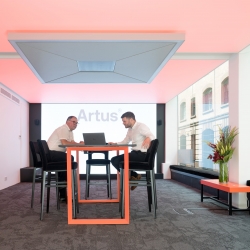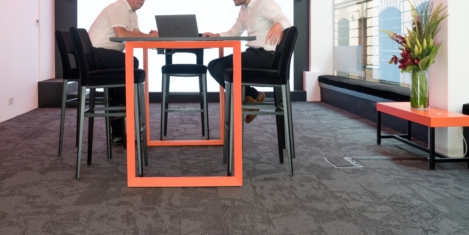June 8, 2022
FUTURE Designs and Artus announce sustainable buildings collaboration
 Artus, the ground-breaking heating and cooling system specialist and FUTURE Designs, the UK’s leading commercial lighting manufacturer, are pleased to announce their collaboration on a purpose-designed, multi service system (MSU), offering a more sustainable and comfortable future for buildings and their occupants. The Artus MSU complements the existing Artus product with an exclusively sourced, custom-built lighting system from FUTURE Designs, alongside comprehensive acoustic properties. This means the functionality is threefold: Artus’s advanced patented air conditioning system, FUTURE Designs’ intelligent lighting system and Class A acoustics. (more…)
Artus, the ground-breaking heating and cooling system specialist and FUTURE Designs, the UK’s leading commercial lighting manufacturer, are pleased to announce their collaboration on a purpose-designed, multi service system (MSU), offering a more sustainable and comfortable future for buildings and their occupants. The Artus MSU complements the existing Artus product with an exclusively sourced, custom-built lighting system from FUTURE Designs, alongside comprehensive acoustic properties. This means the functionality is threefold: Artus’s advanced patented air conditioning system, FUTURE Designs’ intelligent lighting system and Class A acoustics. (more…)































March 23, 2022
A burst of technological innovation is reshaping the future of work
by Toby Benzecry • Comment, Flexible working, Technology, Workplace design